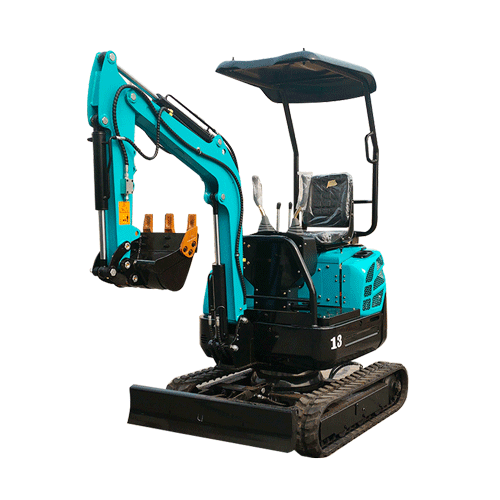Introducción

Excavadoras, or excavadoras, are essential heavy construction equipment used for digging trenches, foundations, and holes, as well as for material handling, demolition, and landscaping tasks. Choosing the perfect excavadora for your construction project requires careful consideration of various factors to ensure efficiency, productivity, and cost-effectiveness. In this guide, we’ll delve into the key aspects to consider when selecting the right excavadora for your specific needs.
Comprender los requisitos de su proyecto
Before delving into the specifics of selecting an excavadora, it’s imperative to conduct a thorough analysis of your construction project’s requirements. This preliminary step involves a comprehensive understanding of various factors that can significantly influence the choice of excavadora.
First and foremost, consider the type of terrain on which the excavation will take place. Is it rocky, soft soil, or a combination of both? The terrain’s characteristics will dictate the type of excavadora best suited to handle the ground conditions effectively.
Furthermore, assess the depth and scope of the excavation work. Are you digging shallow trenches or deep foundations? Understanding the extent of excavation helps determine the size and capabilities required of the excavadora.
Equally important is considering the nature of materials to be handled during the construction process. Will you be moving heavy rocks, loose soil, or debris? Different excavadoras come with varying bucket capacities and strengths tailored to handle specific materials efficiently.
Assessing Size and Capacity
Excavadoras come in a range of sizes and capacities, from compact mini-excavators to large hydraulic machines. The size and capacity of the excavadora you choose should align with the scale of your project and the volume of work to be done. Refer to the table below for a comparison of common excavadora sizes and their typical capacities:
| Excavadora Size | Operating Weight (tons) | Bucket Capacity (cubic yards) |
|---|---|---|
| Mini | 1-6 | 0.1-0.5 |
| Pequeño | 6-10 | 0.3-0.8 |
| Medio | 10-20 | 0.8-1.5 |
| Grande | 20-40 | 1.5-3.0 |
| Extra Large | 40+ | 3.0+ |
Choosing an excavadora with the right size and capacity ensures optimal performance and productivity on the job site while minimizing operational costs.
Evaluating Power Source and Mobility
Excavadoras are versatile machines powered by a variety of sources, each offering unique advantages and considerations. The primary power sources for excavadoras include diesel, electric, and hybrid engines, each with its own set of characteristics to consider when making a selection.
Diesel Power:
Diesel-powered excavadoras are a popular choice due to their robustness, high torque output, and widespread availability of diesel fuel. They are well-suited for heavy-duty applications and prolonged operation in remote or off-grid locations where access to electricity may be limited. However, diesel engines emit exhaust emissions, including particulate matter and nitrogen oxides, which may be subject to emissions regulations and environmental concerns. Regular maintenance, such as oil changes and filter replacements, is essential to ensure optimal performance and longevity of diesel-powered excavadoras.
Electric Power:
Electric excavadoras are powered by electric motors, offering several advantages such as quieter operation, zero emissions at the point of use, and potentially lower operating costs compared to diesel counterparts. They are particularly well-suited for indoor construction projects, urban areas with strict emissions regulations, and sites where noise pollution is a concern. However, electric excavadoras require access to reliable electricity sources, which may limit their usability in remote or off-grid locations. Additionally, the length of operation is constrained by the capacity of the battery or access to charging infrastructure, necessitating careful planning for extended work periods.
Hybrid Power:
Hybrid excavadoras combine the benefits of diesel and electric power sources, offering improved fuel efficiency, reduced emissions, and enhanced versatility. These machines typically feature a combination of a diesel engine and an electric motor, with energy regeneration capabilities during braking or deceleration to recharge the battery. Hybrid excavadoras are well-suited for applications where a balance between power, efficiency, and environmental impact is desired. They offer the flexibility to operate in both diesel and electric modes, providing optimal performance across a range of working conditions. However, hybrid excavadoras may come with a higher initial cost compared to conventional diesel models, requiring careful consideration of long-term savings and benefits.
In addition to the choice of power source, mobility requirements play a crucial role in selecting the right excavadora for your project. Excavadoras are available with various mobility options, including tracks and wheels, each offering distinct advantages depending on the terrain and working conditions.
Examining Attachments and Versatility
Excavadoras boast a multitude of advantages, foremost among them being their remarkable versatility, which can be significantly augmented through the utilization of an array of attachments. These attachments, ranging from buckets to hydraulic hammers, grapples, and augers, among others, greatly amplify the excavadora’s functionality, rendering it adept at a diverse range of tasks.
When contemplating the acquisition of an excavadora, it is imperative to factor in the availability of compatible attachments and meticulously evaluate their suitability for the specific requirements of your project. Opting for a versatile excavadora outfitted with a plethora of attachments not only facilitates seamless adaptation to varying tasks but also enhances operational efficiency by obviating the necessity for additional equipment. Such versatility enables the excavadora to undertake an extensive spectrum of functions, ranging from excavation and material handling to demolition and earthmoving, thereby streamlining project execution and bolstering productivity.
Considering Cost and Total Ownership

While the initial cost undeniably holds weight in the decision-making process of excavadora selection, it is imperative to broaden the perspective and factor in the total cost of ownership throughout the equipment’s lifespan. A comprehensive evaluation entails scrutinizing various facets such as maintenance demands, fuel efficiency, resale potential, and warranty coverage to ascertain the long-term economic viability of your investment.
Maintenance requirements play a pivotal role in determining the overall cost of ownership. Opting for an excavadora with low maintenance needs can significantly curtail operational expenses and minimize downtime. Furthermore, prioritizing fuel efficiency can lead to substantial savings over time, particularly in projects requiring prolonged equipment usage. Conducting thorough research on different models’ fuel consumption rates and opting for the most efficient option can translate into considerable cost savings in the long run.
Resale value is another crucial consideration, as it directly impacts the depreciation of your investment. Investing in a reputable brand with a strong market presence and a track record of retaining value can potentially yield higher returns upon resale or trade-in. Additionally, investigating warranty coverage terms and conditions is essential to safeguard against unexpected repair costs and mitigate financial risks associated with equipment breakdowns.
Exploring various financing options and leasing arrangements can offer flexibility in managing upfront costs and aligning with budgetary constraints. Lease agreements, for instance, may provide access to advanced equipment without substantial capital outlays, allowing for better cash flow management and preserving capital for other project requirements.
PREGUNTAS FRECUENTES
What safety features should I look for in an excavadora?
Safety features to consider include rollover protection systems (ROPS), falling object protection systems (FOPS), rearview cameras, audible alarms, and ergonomic operator controls.
Can I rent an excavadora instead of purchasing one?
Yes, many equipment rental companies offer excavadoras for short-term and long-term rentals, providing flexibility and cost savings for projects with varying duration and scope.
How do I transport an excavadora to the job site?
Excavadoras can be transported using specialized trailers or trucks equipped with ramps or hydraulic lifts. Ensure compliance with transportation regulations and obtain necessary permits for oversized loads if applicable.
What is the typical lifespan of an excavadora?
The lifespan of an excavadora varies depending on factors such as usage intensity, maintenance practices, and environmental conditions. With proper care and maintenance, excavadoras can remain operational for 10,000 hours or more.
Are there any environmental regulations governing the operation of excavadoras?
Yes, environmental regulations may restrict emissions levels, noise pollution, and habitat disturbance associated with excavadora operations. Ensure compliance with local, state, and federal regulations to minimize environmental impact.
Conclusión
Choosing the perfect excavadora for your construction project involves a comprehensive assessment of project requirements, equipment specifications, and economic considerations. By understanding the key factors outlined in this guide and utilizing resources such as size and capacity charts, you can select an excavadora that maximizes productivity, efficiency, and cost-effectiveness on the job site.
